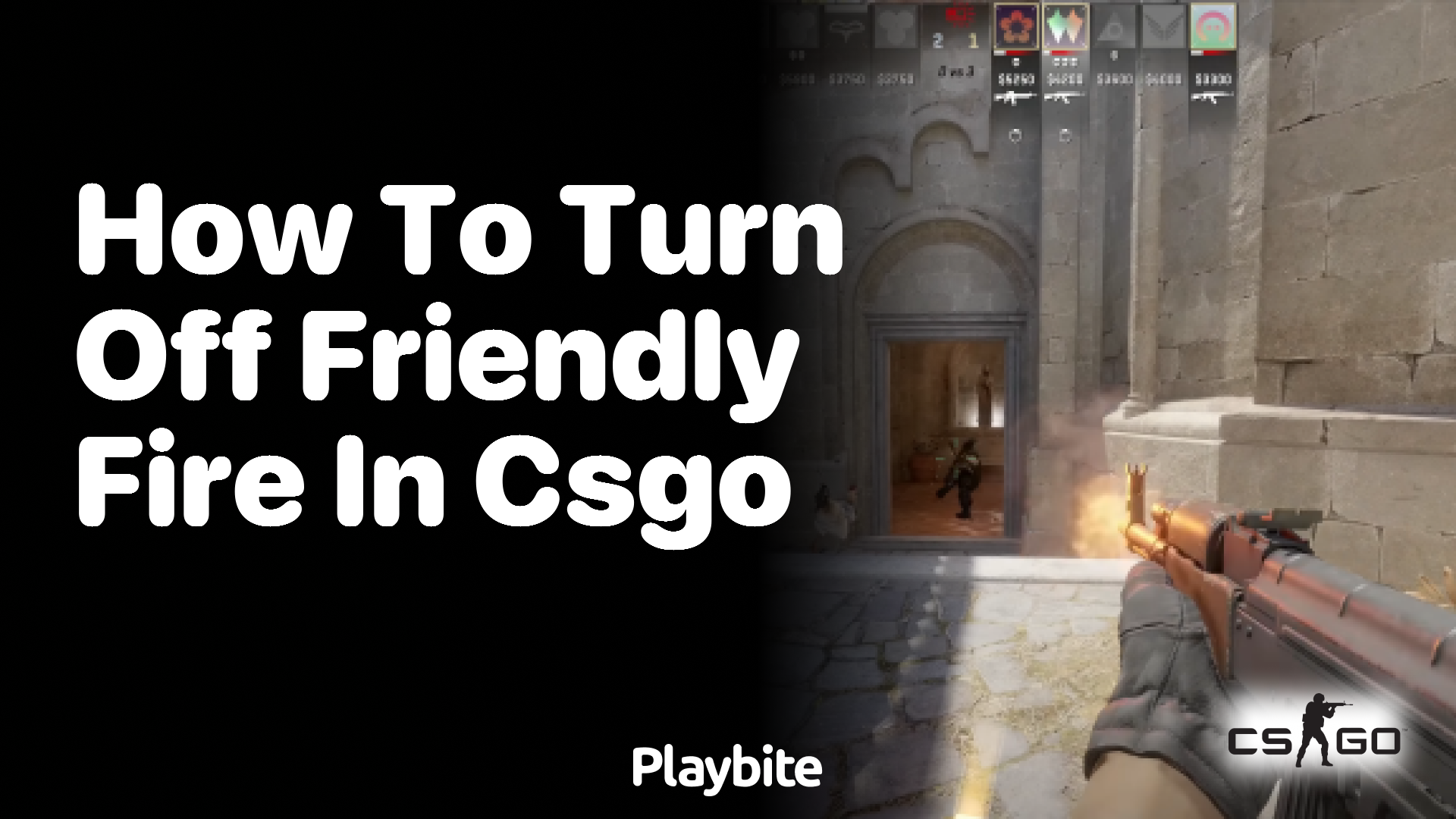BDP Engbu Insights
Your go-to source for the latest news and insights.
Love and War: Navigating the Quirks of CSGO Friendly Fire
Explore the chaotic world of CSGO friendly fire! Uncover tips, tricks, and hilarious moments that make love and war a thrilling gaming experience!
Understanding Friendly Fire in CSGO: Mechanics and Implications
Understanding Friendly Fire in CS:GO is critical for players who wish to enhance their gameplay and strategy. Friendly fire refers to the ability for players to damage their teammates, a feature inherent to many competitive first-person shooters, including Counter-Strike: Global Offensive. This mechanic adds a layer of realism and requires heightened awareness and communication among team members. Players need to be cautious when executing strategies, as mistaking a teammate for an enemy can lead to detrimental consequences not only for individual performance but also for the team's overall success.
Moreover, the implications of friendly fire extend beyond mere game mechanics; it underscores the importance of teamwork and effective communication in CS:GO. A well-coordinated team can minimize probability of friendly fire incidents by sticking together, using voice chat for callouts, and maintaining disciplined engagement strategies. Players should also be aware of the game’s penalty system, which can impose negative consequences for excessive friendly fire, further incentivizing players to focus on team cohesion. In understanding friendly fire, players can not only improve their own gameplay but also foster a more effective and harmonious team environment.

Counter-Strike is a highly popular first-person shooter game that has captivated players worldwide for years. One of the most iconic maps in the game is Nuke, known for its complex layout and strategic gameplay. For players looking to improve their skills, understanding nuke callouts can greatly enhance team communication and strategy.
Tips for Minimizing Friendly Fire in Competitive Matches
Minimizing friendly fire in competitive matches is crucial for maintaining team morale and improving overall performance. One effective strategy is to develop clear communication among team members. Utilize voice chat or in-game messaging to call out your actions, notify teammates of your movements, and coordinate strategies. This way, all players are aware of each other’s positions and intentions, greatly reducing the risk of accidental hits. Additionally, you might consider using ping systems to indicate enemy locations or request assistance without the need for verbal communication.
Another practical approach to reduce the chances of friendly fire is to establish specific roles and responsibilities within the team. When each player knows their assigned position and tasks, the likelihood of crossing paths during heated engagements diminishes. For example, a designated sniper can stay in the backline while soldiers advance, minimizing proximity-related accidents. Furthermore, practicing together during scrimmages can help all players understand their teammates' playstyles, leading to better coordination and fewer mishaps during competitive matches. Emphasizing the importance of awareness and positioning will contribute significantly to reducing friendly fire incidents.
Is Friendly Fire a Blessing or a Curse? Exploring Player Perspectives
The debate surrounding friendly fire in multiplayer games has been a contentious one, sparking discussions among players for years. On one hand, some argue that friendly fire adds a layer of realism and intensity to gameplay, enhancing teamwork and communication. Players must strategize carefully to avoid harming their allies, which can foster collaboration and reinforce the bonds within a team. This perspective sees friendly fire not just as an obstacle, but as a crucial mechanic that enhances the gaming experience, making every action more meaningful.
Conversely, others view friendly fire as a frustrating element that detracts from enjoyment. Accidental deaths can lead to resentment among teammates, ruining the overall gaming experience. This perspective suggests that friendly fire creates unnecessary stress and can discourage players from engaging with the game, especially if they feel that their efforts are undermined by a mistake. Ultimately, whether friendly fire is a blessing or a curse may depend on personal preferences and the specific game mechanics in play, indicating that player perspectives on this issue are as diverse as the gaming community itself.